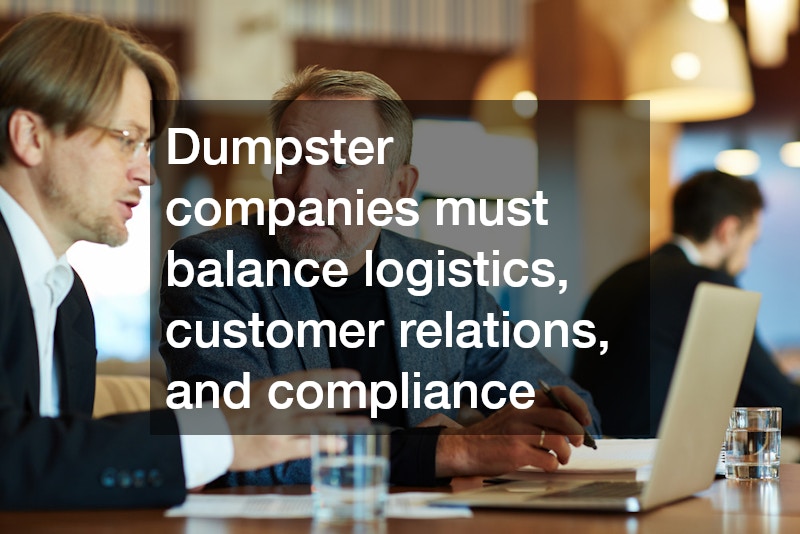Dumpster companies play a crucial role in waste management and environmental preservation. These companies offer clients an efficient way to dispose of waste, ensuring that cities and neighborhoods remain clean and safe. Managing a dumpster business involves several critical components, including logistics, customer service, and regulatory compliance, all of which contribute to the smooth operation of the company and satisfaction of its customers.
An essential aspect of managing a dumpster business is optimizing logistics to ensure timely and efficient waste collection. Coordination is key, as dumpster companies need to schedule pickups and deliveries methodically to avoid delays. Many companies employ advanced scheduling software that uses real-time data to adjust routes dynamically, enhancing efficiency and reducing fuel costs. Additionally, the implementation of GPS tracking systems helps improve time management and resource allocation.
Another significant component of operating a dumpster company successfully is maintaining excellent customer service. Building strong relationships with clients is fundamental to retaining business and acquiring referrals. Companies often rely on robust CRM systems (Customer Relationship Management) to manage client accounts, handle service requests, and track feedback. Furthermore, by offering a range of dumpster sizes and rental options, they cater to diverse needs, ensuring customer satisfaction and business growth.

Dumpster companies must balance logistics, customer relations, and compliance to manage their operations effectively. By leveraging technology and maintaining high service standards, these businesses can meet the growing demand for waste management solutions while contributing to a cleaner and more sustainable environment. As the industry evolves, continued innovation and adaptation will be key to their success.
